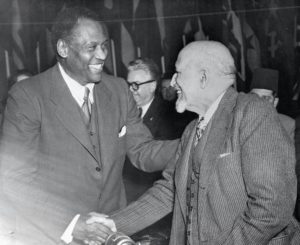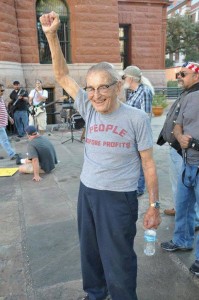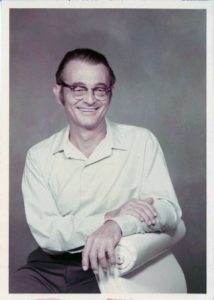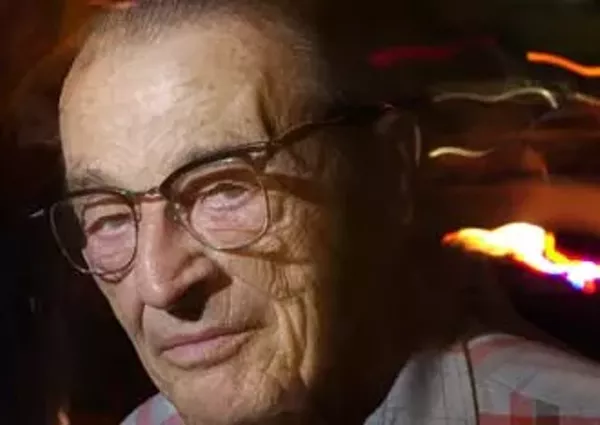Scandalize my Name
– from Greg Godels is available at:
http://zzs-blg.blogspot.com/
For the owners, publishers, and editors of the The New York Review of Books anti-Communism is still alive. The periodical occupies a unique, indispensable role in fostering and sustaining Cold War myths and legends.
The New York Review of Books has embraced rabid anti-Communism since its opportunistic birth in the midst of a newspaper strike. Founded by a cabal of virulent anti-Communists with identifiable links to the CIA through The Paris Review and the American Committee for Cultural Freedom, NYRB maintains the posture of the popular intellectual journal for academics, high-brow book clubbers, and coffee shop leftists for over half a century. Seldom would an issue go by without an earnest petition signed by intellectual celebrities pointing to human rights concerns in some far-off land that was coincidentally (perhaps?) also in the crosshairs of the US State Department. To be sure, the NYRB would muster a measure of indignation over the most egregious US adventures, particularly when they threatened to blemish the US image as the New Jerusalem.
Even with the Cold War behind us, the NYRB maintains an active stable of virulent anti-Soviet writers, partly to hustle its back list of Cold War classics and obscure dissident scribblers, partly to pre-empt any serious anti-capitalist thought that might emerge shorn of Red-dread.
In a recent essay/book review (The Emperor Robeson, 2-08-18), the NYRB brought its Red-chopping hatchet to the legacy of Paul Robeson in a piece transparently ill-motivated and poisonous.
Paul Robeson was nothing if not an exceptional, courageous political figure who galvanized US racial and political affairs in mid-century. Yet NYRB assigned Simon Callow, a UK theater personality, to the writing task despite the fact that he reveals in an interview cited in Wikipedia that I’m not really an activist, although I am aware that there are some political acts one can do that actually make a difference. And his essay bears out this confession along with his embarrassing ignorance of US history and the dynamics of US politics.
Callow begins his essay seemingly determined to prove his inadequacy to the task: When I was growing up in Britain in the 1950s and 1960s, Paul Robeson was much in evidence. His name was haloed with the sort of respect accorded to few performers. He then goes on at some length, heaping praise on Robeson. Then suddenly at some point in the 1960s, he faded from our view.
Whether Callow’s impressions are reflective of the UK experience is irrelevant. Surely, the important truth, the relevant fact, is that in Robeson’s country– the US– he was, throughout that time, a veritable non-person, the victim of a merciless witch hunt. To fail to acknowledge the fact that Robeson and his work were virtually unknown, were erased by the thought police, underscores Callow’s unfitness to discuss Robeson’s career. Indeed, members of the crowd that sought, at that time, to put lipstick on the ugly pig of racism and anti-Communism were soon to found the NYRB.
To say, as Callow does, that before the Cold War Robeson was …lionized on both sides of the Atlantic… is to display an unbelievable ignorance of the racial divide in the US. Robeson’s unequalled command of and success at multiple disciplines failed to spare him the indignities and inequalities that befell all African Americans in that era of US apartheid.
As for the post-World War II Red-scare, Callow simply ignores it as if it never occurred. Never mind the harassment, the surveillance, the denied careers, the confiscated passports, and the HUAC subpoenas that Robeson, like thousands of others, suffered from a hysterical, vicious anti-Communist witch hunt. For Callow, Robeson’s problems spring from a meeting granted by then President Truman in which Robeson had the audacity to make demands on his government. From that moment on Callow tells us, …the government moved to discredit Robeson at every turn.
What a deft, nimble way to skirt the suffocating, life-denying effects of an entire era of unbridled racism and anti-Communism.
And, from Callow’s myopic perspective, Robeson’s campaign for peace and Cold War sanity resulted in …universal approbation turned overnight into nearly universal condemnation. For Callow, standing for peace against the tide of mindless conformity and mass panic is not the mark of courage and integrity, but a tragic career move.
In contrast to Paul Robeson’s life-long defiance of unjust power, Callow attributes a different approach to Robeson’s father, William: But the lesson was clear: the only way out of poverty and humiliation was hard, hard work– working harder than any white man would have to, to achieve a comparable result. One waits futilely to read that this reality is precisely what son, Paul, was trying to correct.
Like so many of today’s belated, measured admirers of Paul Robeson, Callow cannot resist delving into Robeson’s sexual proclivities, an interest which bears relevance that frankly escapes me. Similarly, Callow raises the matter of Robeson’s mental health and his withdrawal from public life.
Rather than considering the toll that decades of selfless struggle and tenacious resistance might have taken on Robeson’s body and mind, as it did countless other victims of the Red Scare, Callow contrives different explanations. Robeson, it is clear, knew that his dream was just that: that the reality was otherwise. But he had to maintain his faith, otherwise what else was there? So, for Callow, Robeson’s bad faith was responsible for mental issues and ill health. It was not a medical condition, the emotional stress of racism, or the repression of his political views that explain his decline. Instead, it was the consequences of bad politics.
Paraphrasing the author of a book on Robeson that Callow favors, he speculates that Robeson’s physical and mental decline may have directly stemmed from the desperate requests from Robeson’s Russian friends to help them get out of the nightmarish world they found themselves in. We are asked to believe that a man who resisted every temptation of success, defied the racial insults of his time, and steadfastly defended his commitment to socialism was brought to his knees by anti-Soviet media rumors? Certainly, there is no evidence for this outlandish claim.
Again, using author Jeff Sparrow (No Way But This: In Search of Paul Robeson) as his mouthpiece, Callow reveals his problem with Robeson: …Robeson’s endorsement of Stalin and Stalin’s successors, his refusal to acknowledge what had been done in Stalin’s name, is the tragedy of his life. In other words, like Budd Schulberg’s fictional snitch in On the Waterfront, if Robeson had only denounced his class, ratted on his friends, and bent to authority, he could have been a contender for the respect of liberals and the blessings of bourgeois success. But since he didn’t, his life was a pitiful spectacle.
Thankfully, there are still many who draw inspiration from the pitiful spectacle of Paul Robeson’s extraordinary life.
As if misunderstanding Robeson were not enough, Callow attacks a prominent scholar who does understand Robeson’s legacy. In contrast with his fawning review of the Sparrow book (as different as chalk and cheese), Callow demeans the contribution of one of the most gifted and thorough chroniclers of the page in history that included the life of Robeson. As a historian, Gerald Horn’s prodigious work stretches across books on such politically engaged Robeson contemporaries as WEB DuBois, Ben Davis, Ferdinand Smith, William Patterson, Shirley Graham DuBois, and John Howard Lawson. His writings explore the blacklist and The Civil Rights Congress, both keys to understanding Robeson and his time. In most cases, they represent the definitive histories of the subject.
But Callow prefers the shallow Sparrow account that substitutes the overused literary devices of in search of../searching for… to mask its limited scholarly ambition.
Callow is baffled by Horne’s Paul Robeson: The Artist as Revolutionary. Horne’s insistence that Robeson was a ˜revolutionary makes Callow apoplectic (…page after page). But if Robeson was not an authentic, modern US revolutionary, then who was?
Callow cannot find a “clear picture of Robeson’s personality in the Horne account, a conclusion that probably should not trouble Horne who seems more interested in history rather than psychology.
Callow’s sensibilities are especially offended by Horne’s depiction of the odious Winston Churchill, the man many believe to share responsibility for the WWI blood bath at Gallipoli and the two million deaths in the Bengal famine of 1943. It seems that Horne’s words for the short, chubby, Champagne and Cognac-loving prima donna– ‘pudgy, cigar-chomping, alcohol-guzzling Tory — struck Callow’s ears as vulgar.
But Callow spews his own venomous insults: Horne’s book lacks …articulate analysis, his account is numbing and bewildering in equal measure, like being addressed from a dysfunctional megaphone.
Horne’s concluding endorsement of the relevance of Marx and Engels famous slogan– Workers of the World, Unite! –really brings Callow’s rancor to a boil: I’m sorry to break it to Mr. Horne, but he doesn’t. And it isn’t.
We surely know which side of the barricades Simon Callow has chosen.
The legacy of Paul Robeson has been maintained for the four decades since his death by his comrades and allies of the left, principally the Communist left. Most of those who worked and fought alongside of him have also passed away. Yet a small, but dedicated group of a few academics and more political activists have continued to tell his story and defend his values against a torrent of hostility or a wall of silence. Through the decades, he has been forced out of the mainstream– the history books and popular culture.
Of course, he was not alone in suffering anonymity for his Communist politics. Another giant who was brought down by Cold War Lilliputians, denigrated by hollow mediocrities, was African American Communist, Claudia Jones. Until recently, her powerful thinking on race, women’s rights, and socialism could only be found by those willing to search dusty corners of used book stores.
Perhaps no one promised to live and further Robeson’s legacy than the young writer Lorraine Hansberry, celebrated before her tragic death for her popular play, A Raisin in the Sun. Her work with Robeson and WEB DuBois on the paper, Freedom, brought her politics further in line with theirs: militant anti-racist, anti-imperialist, pro-socialist, Communist.
Forgotten by those who wish to portray her as a mere cultural critic, she famously called out Robert Kennedy’s elitist, patronizing posture in a meeting with Black civil rights leaders as enthusiastically recalled by James Baldwin.
Ignored by those who would like to see her as simply another civil rights reformer, her speech at a Monthly Review fundraiser, shortly before her death, resounds with revolutionary fervor:
Today, there is a renewed interest in Robeson, Claudia Jones, and Lorraine Hansberry. Articles, books, and documentaries are appearing or are in the works. Some are offering new perspectives on the lives of these extraordinary people, exploring aspects of their lives that show that their humanity perhaps reached further than previously thought. Yes, they were Communists, but they were not just Communists. Indeed, they belong to the world.
However, it would be a great tragedy if they were denied their conviction that capitalism– the present organization of American society, in Hansberry’s words– represented the foundation of other oppressions. It would be criminally dishonest if there were no acknowledgement that they were made enemies of the state precisely because they embraced socialism. For an African American, in racist, Cold War mid-century USA, the decision to embrace Communism was not taken lightly or frivolously. Robeson, Jones, and Hansberry knew exactly what that commitment meant to the forces of repression. And they risked it. They should be looked upon as people’s champions for their courage.
New researchers are welcome to explore other dimensions of the lives of these unbending fighters for social justice. But their authentic legacies are needed now more than ever.














